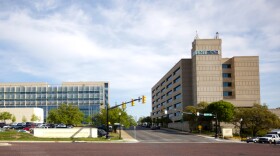-
More nurse practitioners are stepping up to meet the needs of Hoosier patients as Indiana grapples with a shortage of primary care doctors.Nurse…
-
Earlier this month, dignitaries gathered at Arkansas State University in Jonesboro to cut the ribbon on a new medical school, only the second in a state…
-
If someone is well-educated, the odds are that he or she will marry someone with similar credentials, according to census data. And that trend has…
-
There’s a serious doctor shortage in the United States and the problem is set to get worse if medical schools don't increase the number of physicians they…
-
There are dozens of counties in Texas without even one physician. There are even more without a psychiatrist. So how do you convince young medical school…

Play Live Radio
Next Up:
0:00
0:00
Available On Air Stations





